Natural Herbs Improve Health
Healing properties of natural herbs improve health and wellness.

If you work hard at living a healthy life, getting regular exercise, eating healthy meals, getting plenty of sleep and staying positive, then you know how simple changes in your life can offer you long term health benefits.
Most people know about the basic health necessities mentioned above, but not nearly as many people know that natural herbs can improve health. Whether it is reducing inflammation, relief from menopause symptoms, or improving circulation, herbs, which can easily be added to your diet, have so much to offer us!
Holy Basil
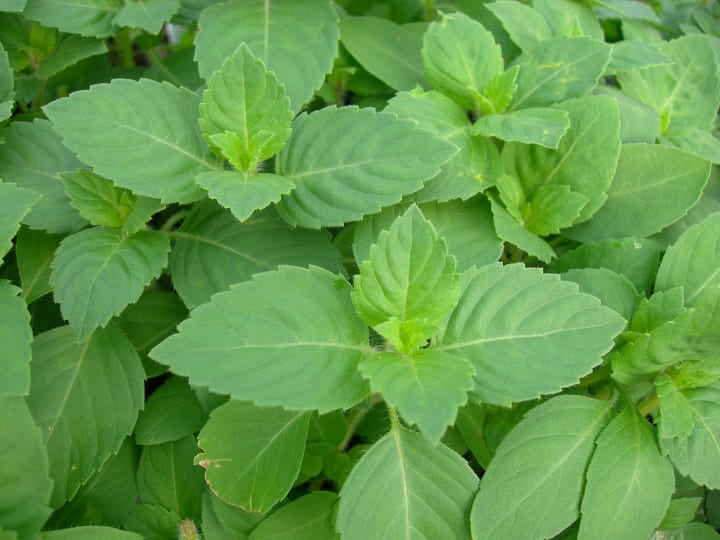
Photo via Grow Plants
Called tulsi in its native country of India, holy basil (ocimum sanctum) has been used for thousands of years in traditional Ayurvedic medicine. This is one of the best anti-inflammatory natural herbs available today. Studies show that holy basil is just as effective as many over the counter pain killers and anti-inflammatory agents. Holy basil is often used in a tea form to relieve the pain that comes with inflammation, as well as to prevent inflammatory problems, such as arthritis, carpal tunnel syndrome, a slower immune response, and heart disease. Chronic inflammation has been linked to a higher risk of cancer, so reducing inflammation is vital to your health and longevity.
Hawthorn
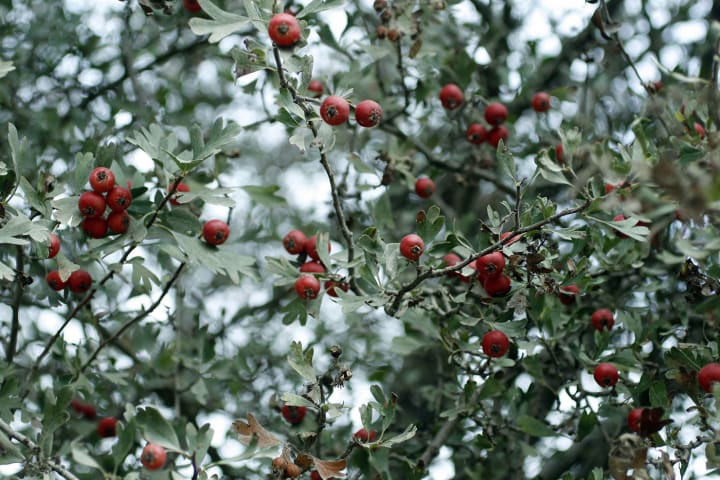
Photo via Taste of Beirut
When it comes to natural herbs improving heart health, it’s hard to beat old fashioned Hawthorn. This herb has been used for centuries to calm heart palpitations, reduce blood pressure by dilating blood vessels, and protect the blood vessels from the damage that is caused by free radicals. Hawthorn improves blood circulation through its high levels of quercetin and rutin, which improve blood flow throughout the entire body. Improved blood flow to the brain will increase memory and cognition, while it regulates heartbeat and rhythm. Hawthorn is high in antioxidants, such as oligomeric procyandins, that protect the blood vessels. This herb has been used for centuries and it can be a bit difficult to find in smaller stores, but it is well worth looking for!
Yarrow
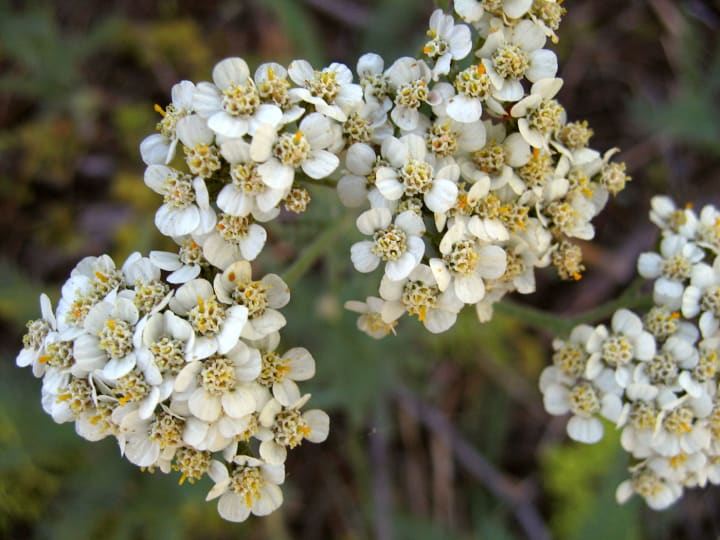
Photo via The Herbal Resource
Yarrow is another old fashioned natural herb that has been used for untold centuries and is one of the most versatile plants around. This beautiful flowering herb works well in combination with other herbs and was used by the Native Americans as a means of improving fertility, as well as encouraging a regular menstrual cycle. Yarrow can stop cramps with its anti-inflammatory and antispasmodic compounds. Yarrow is used to relieve heavy bleeding and improved circulation throughout the female reproductive organs. This plant is often found in fields near the foothills so you can harvest it wild and make tea from the flowers and leaves. Yarrow is also available in almost all natural stores and health food locations in supplement or tea form.
Chinese Hawthorn
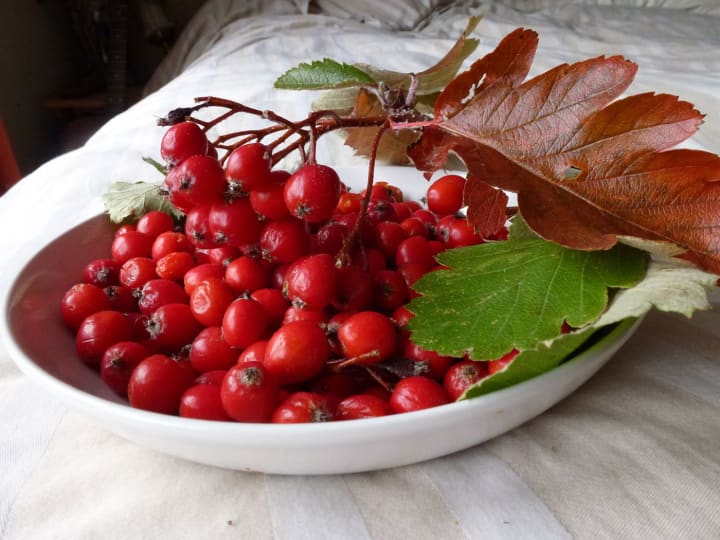
Photo via Arcadian Abe
Not to be confused with the regular Hawthorn we spoke about above. Chinese hawthorn (Crataegus pinnatifida) has been used for ages to deal with hypertension. Research has shown that this herb has two powerful antioxidant compounds, oligomeric procyandins and oligomeric flavonoids, both of which are a super heart tonic. Chinese hawthorn, sometimes called Chinese haw, also contains alkaloid rhynchophylline, which can help prevent platelet aggregation and thrombosis. By relaxing the blood vessels, this herb leads to lower blood pressure levels, which in turn can prevent heart disease and stroke. Chinese hawthorn also prevents the buildup of plaque on the artery walls and stop blood clots from forming in the brain, heart, or arteries.
Black Cohosh
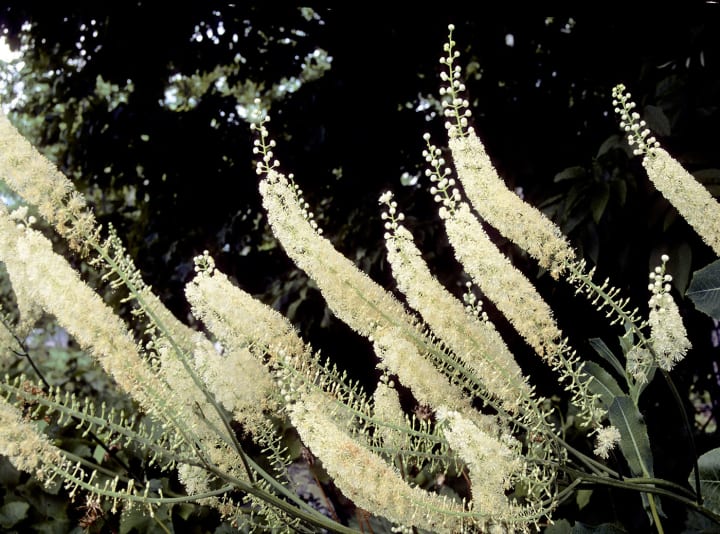
Photo via NIH
This is one of the most popular natural herbs for women who are experiencing the uncomfortable symptoms that come with menopause. Black cohosh has been used by the Native Americans for many years and is even recommended by doctors. This herb is especially effective for stopping night sweats and hot flashes, although scientists do not fully understand how this herb works. Some scientists believe that this herb stimulates the hypothalamus, which is the area that is responsible for hot flashes. Other studies have revealed that black cohosh have phytoestrogens, which fool the body into believing it is still receiving estrogen.
Lemon Balm
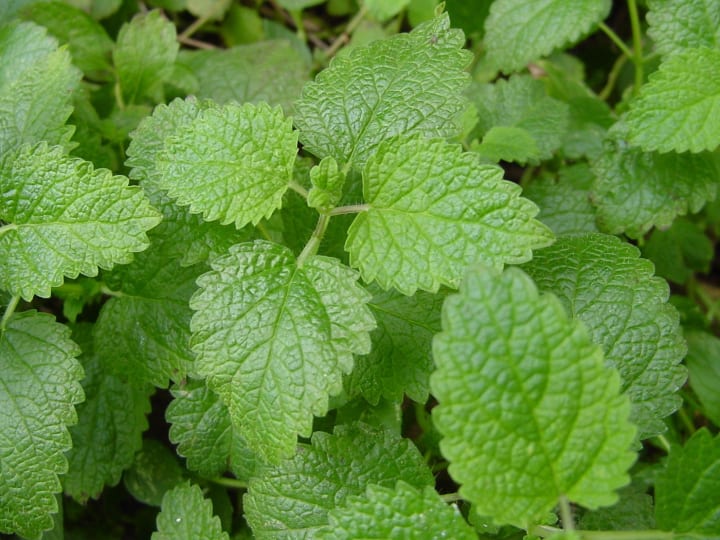
Photo via One How To
For those who suffer from insomnia or anxiety, you can’t beat lemon balm. Indigenous to Europe, lemon balm has been used medicinally since at least the Middle Ages. Lemon balm is well known for reducing stress, relieving feelings of anxiety, relaxing muscles, and inducing sleep. Lemon balm is extremely mild, so mild, in fact, that it can be safely given to children. Lemon balm works well in combination with other relaxing type herbs, such as hops or chamomile. You will often find teas designed to beat insomnia with a mixture of valerian and lemon balm. One study found that subjects who suffered from mild insomnia found relief when given lemon balm extracts combined with valerian root.
Comfrey
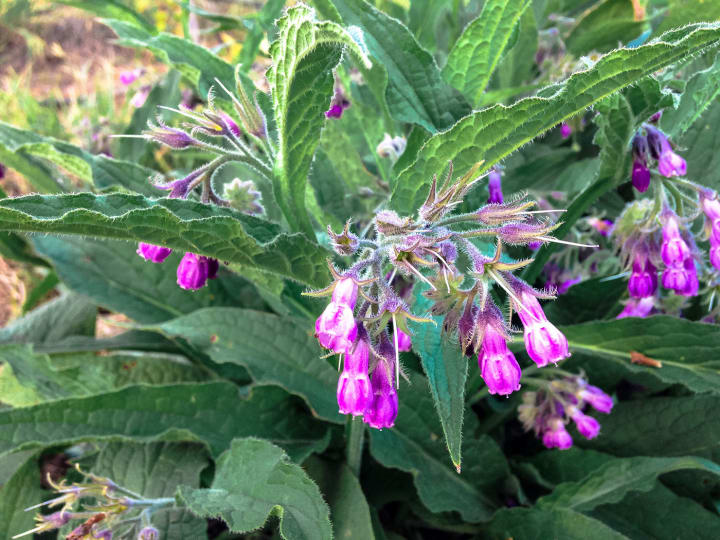
Photo via All Good Things
Your skin is the largest organ on your body, so it only makes sense that you want to take care of it. Comfrey is one of the most popular natural herbs for beautiful skin. You will find this healing herb in many skin lotions and creams sold today. Comfrey, sometimes called knit bone, contains a compound called allantoin, which not only protects the skin but encourages cell regeneration. Allantoin also eases inflammation of the skin, which causes redness, and stimulates the skin to repair itself. Some studies have shown that consuming comfrey in large amounts can cause liver damage, so only use this healing herb externally.
Feverfew

Photo via Healthy Tea 101
As the name implies, this herb has been used through the ages to help reduce fevers, but this helpful herb is also one of the most popular herbal remedies to relieve migraines, and with good reason. Studies show that the leaves and flowers of this plant contain a compound called parthenolide, which works by inhibiting brain chemicals which cause blood vessels to dilate. More than one study has found that feverfew not only reduces the severity of migraine attacks, but consumed regularly, it also reduces the frequency of these debilitating headaches. One study found that when subjects stopped taking this herb and were given a placebo, the severity of their migraines, as well as the frequency of their attacks, increased. One large study found that taking feverfew regularly decreased migraines by 24 percent!
Licorice
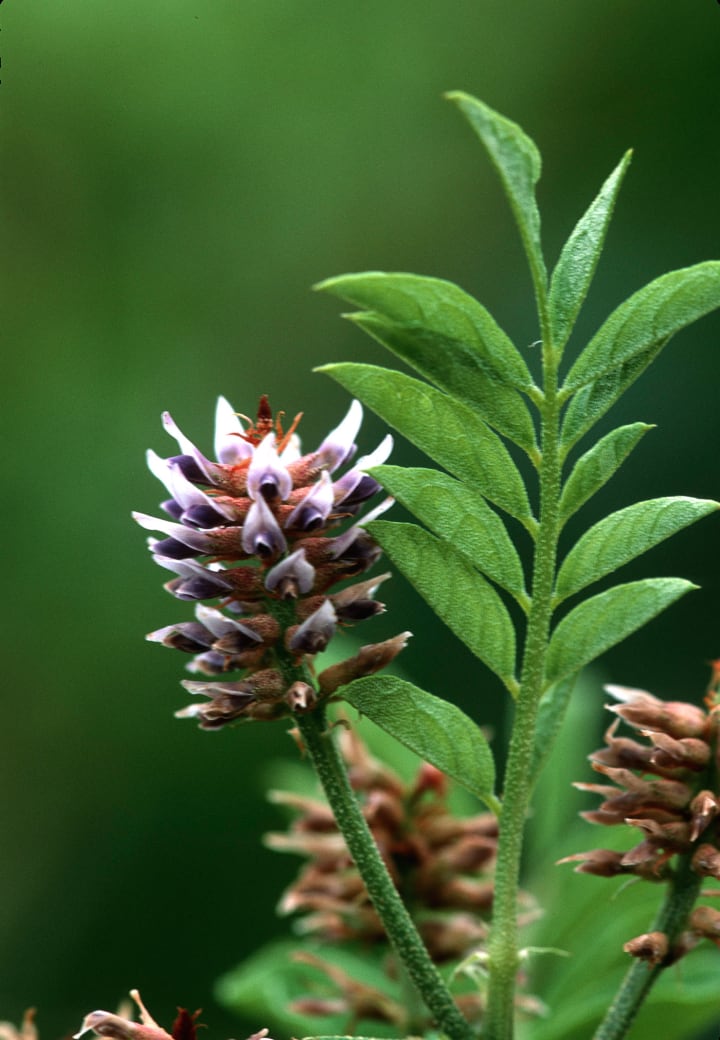
Photo via NIH
Licorice, the same herb used to flavor candy, is one of the best treatments for general, all over, body aches and pains. This herb is rich in a compound called glycyrrhizin, which relieves and blocks inflammation. It also blocks cortisol, a hormone which causes you to feel fatigue and anxiety. Licorice is a natural type of corticosteroid that prevents inflammation, which is the source of most pain. This herb has been used for centuries to relieve digestive pain, such as ulcers and gastritis, as well as stopping heartburn, indigestion, and sore throats. Those with hypertension should not use licorice.
Green Tea

Photo via The Health Philosopher
Green tea comes to us from Japan and is now one of the most popular herbal drinks around! Green tea has been studied extensively over the past few decades and has been found to have tremendous healing benefits, including helping people to lose weight or maintain a healthy weight. This type of tea, unlike others, contains compounds that increase the body’s metabolism, while suppressing the appetite. One study conducted at the University of Birmingham, found that those who regularly drank green tea had less fatigue and higher levels of fat loss than those who consumed a placebo. Always brew green tea, fresh at home as bottled or canned varieties have been highly processed and have little or none of the healthy compounds you are drinking it for!
Turmeric
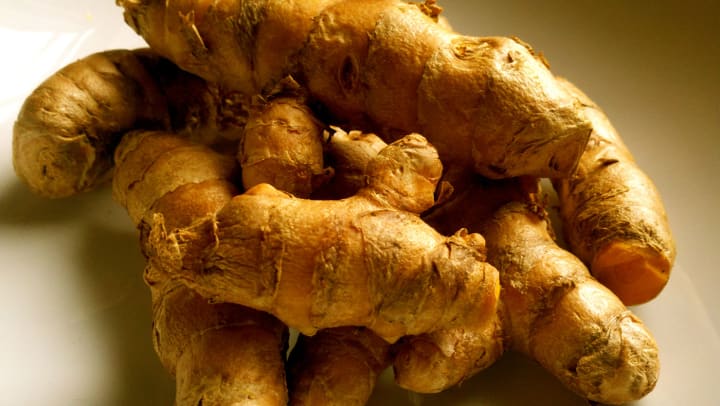
Photo via World's Healthiest Foods
Although most people think of turmeric as the spice that gives their curry sauces a little kick, this is actually a very powerful herb with numerous benefits including the prevention of Alzheimer’s disease, as well as strengthening the body’s immune function. When consumed regularly, turmeric is known to help keep viruses and other illness away. Turmeric improves overall cell health which makes them more disease resistant. Turmeric is also a powerful antioxidant which fights premature aging and protects our DNA from damage by free radicals. Curcumin, the active ingredient in turmeric, is very difficult for the body to absorb, however. Always consume this herb with a fatty meal or a glass of milk as it is fat soluble. Another alternative is to consume this with a few black peppercorns as this has been shown to improve the body’s absorption of curcumin by 2,000 percent!
Butcher's Broom
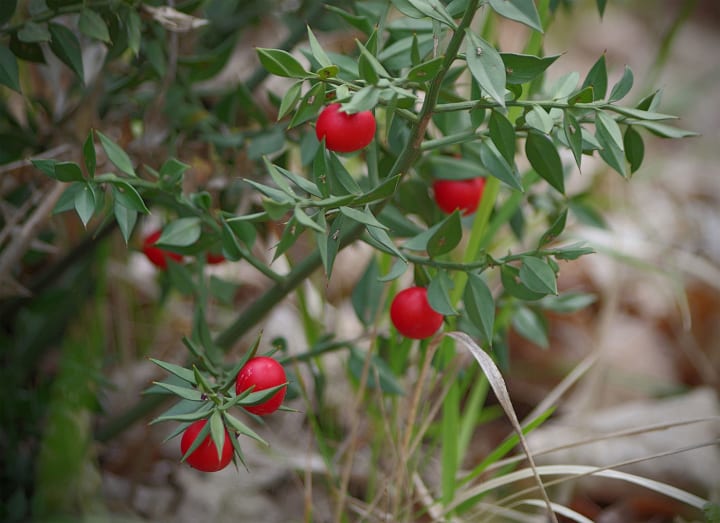
Photo via Gardening Know How
This is a little known natural herb that can do wonders when it comes to keeping the heart in good condition. Butcher’s broom works very much like the name implies; it sweeps away cholesterol while giving the heart essential fatty acids and sterols. By improving the overall health of the blood vessels, this herb can reduce your risk of developing atherosclerosis. While most herbs that are good for the heart are also good for those with hypertension, this is not one of them. If you suffer from low blood pressure, Butcher’s broom can be very helpful at reducing those annoying dizzy spells as it increases blood pressure slightly. If you are unsure if Butcher’s broom is right for you, speak to your doctor.
Couch Grass

Photo via Rachel the Gardener
Couch grass is so much better for you than the name lets on! This herb is rich in volatile oils, mucilages, polysaccharides, and a wide variety of nutrients. Where this herb really shines, however, is how it can remove toxins and treat urinary tract infections, such as urethritis and cystitis by increasing urine output. Couch grass has powerful antibacterial properties and can even keep kidney stones from forming. One study, performed in Italy, found that when they combined potassium citrate with couch grass, the overall number and size of urinary stones were significantly reduced. This benefit lasted at least five months as researchers found that the stones had not returned on a follow up visit.
Milk Thistle
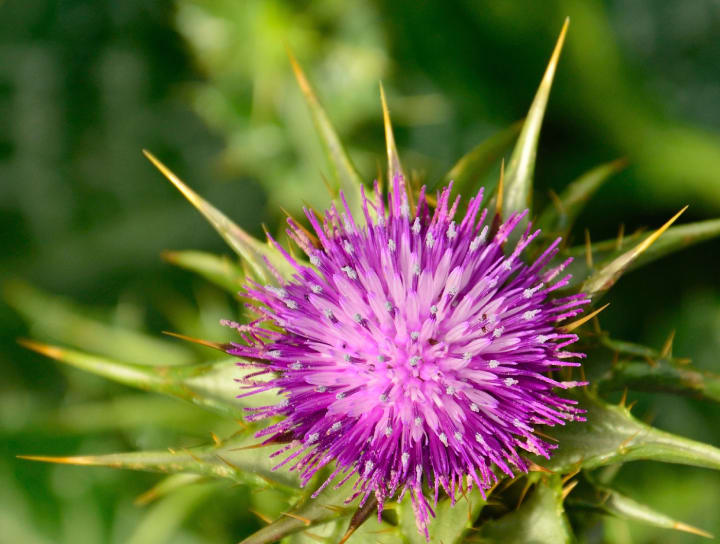
Photo via Gardening Know How
Western herbalists like to say that the eyes “are the windows to your health” and they do have a point. Yellow eyes, weak or blurred vision can all mean problems with the liver. Milk thistle has long been known to improve the health of the liver, which can, in turn, affect the overall health of the eyes. Fat soluble vitamins and a very important antioxidant, glutathione, are stored in the liver. These compounds are responsible for the repair and maintenance of the eyes. Research has shown that the active compound in milk thistle, silymarin, inhibit the role that aldose reductase plays when it comes to the sugar deposition of the eyes. Milk thistle also fights free radical damage by reducing the amount of sugar in the eyes, this herb is like a super hero; fighting eye problems as well as improving liver health.
Dandelion
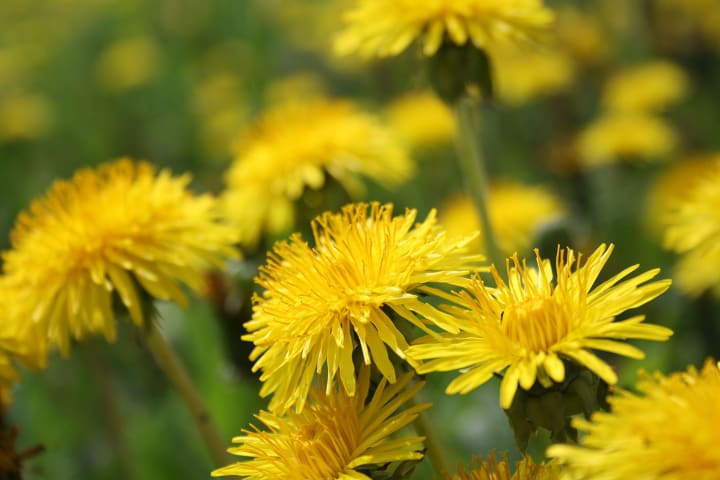
Photo via Health Benefits
This little herb, often thought of in America as nothing more than a weed in our otherwise perfect lawns, is actually a powerful source of nutrition and healing. Dandelion contains calcium, zinc, iron, riboflavin, protein, phosphorus, carotene, manganese, and B vitamins! This yellow flowering herb is best known for its ability to purify the blood, removing toxins, and cleansing the liver. Most people don’t know, however, that the lowly dandelion can also improve digestion. The leaves of this herb as often used to increase the amount of hydrochloric acid in the stomach, which can prevent most common stomach aches. Consumed regularly, dandelion can improve the overall function of the gall bladder, liver, and stomach, which means improved digestion, less gas, and fewer upset stomachs. Dandelion tea consumed just before or just after a meal makes the perfect digestive tonic and even stimulates regular bowel movements. What more could you ask for from one little weed?
About the Creator
James Porterson
Former obese teen turned nutritionist. Enjoys writing about staying active and proper nutrition.
Enjoyed the story? Support the Creator.
Subscribe for free to receive all their stories in your feed. You could also pledge your support or give them a one-off tip, letting them know you appreciate their work.






Comments
There are no comments for this story
Be the first to respond and start the conversation.